38th AGM Profile Book 2025

Prof. Ahsan Iqbal
Chancellor, PIDE/Federal Minister for MoPD&SI
.jpg)
Dr. Nadeem Javaid (SI)
Vice Chancellor, PIDE/President, PSDE

Mr. Awais Manzur Sumra
Secretary, MoPD&SI, Government of Pakistan
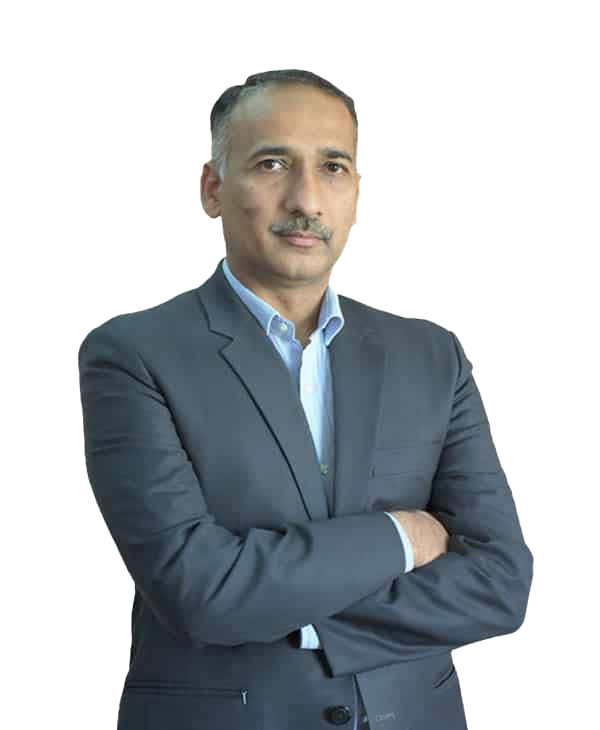
Dr. Nasir Iqbal
Associate Professor & Registrar, PIDE

Mr. Asim Saeed
Former Member (Private Sector Development & Competitiveness), MoPD&SI

Mr. Saleem Ullah
Deputy Governor (Finance, Inclusion & Innovation), State Bank of Pakistan

Dr. Najeebullah Marwat
Member (Science, Technology & ICT), Planning Commission, Government of Pakistan
 Fan.jpg)
Ms. Xiaoqin (Emma) Fan
Country Director for Pakistan, Asian Development Bank (ADB)

Dr. Baber Majid Bhatti
Chief Executive Officer, National Information Technology Board (NITB)

Ms. Fatima Akhtar
Head of Communications and Sustainability, Jazz Pakistan

Mr. Asim Ghaffar
Vice President of Engineering, 10Pearls

Prof. Dr. Niaz Ahmed Bhutto
Professor & Dean, Faculty of Management Sciences, Sukkur IBA University

Dr. Karim Khan
Associate Professor & Dean Faculty of Social Sciences, PIDE
.jpg)
Dr. Naeem uz Zafar (SI)
Chief Statistician, Pakistan Bureau of Statistics (PBS)
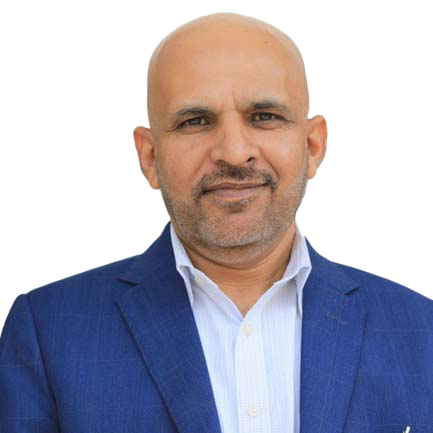
Dr. Zahid Asghar
Professor & Director, School of Economics, Quaid-i-Azam University (QAU), Islamabad

Dr. Jordanka Tomkova
Digital Policy and Roadmap Development Expert, Asian Development Bank (ADB)
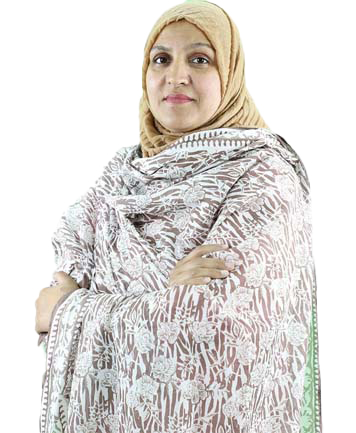
Dr. Farhat Mehmood
Lecturer, Pakistan Institute of Development Economics (PIDE), Islamabad

Prof. Dr. Mumtaz Anwar Chaudhry
Dean, Faculty of Business, Economics & Administrative Sciences, University of the Punjab
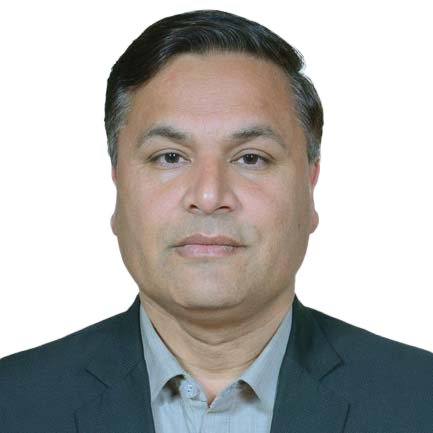
Dr. Zahoor Khan
Associate Professor of Development Economics, IMSciences, Peshawar

Dr. Safdar Sohail
Executive Director, Social Protection Resource Centre (SPRC)

Prof. Pier Paolo Saviotti
Universite Pierre-Mendes-France

Dr. Shazia Akhtar
Head of the Department of Management Sciences, SZABIST

Dr Adnan Rafiq
Member Governance, MoPD&SI

Dr. Idrees Khwaja
Former Chief of Research, PIDE

Mr. Fazal Muhammad
Former Head, NPGP, MOPA&SS

Dr. Talat Anwar
SBP Memorial Chair, Bahauddin Zakariya University

Mr. Zafar ul Hassan
MoPD&SI

Dr. Muhammad Jamil
SBP Chair, AJK

Dr. Maqsood Aslam
Assistant Professor, Quaid-i-Azam University
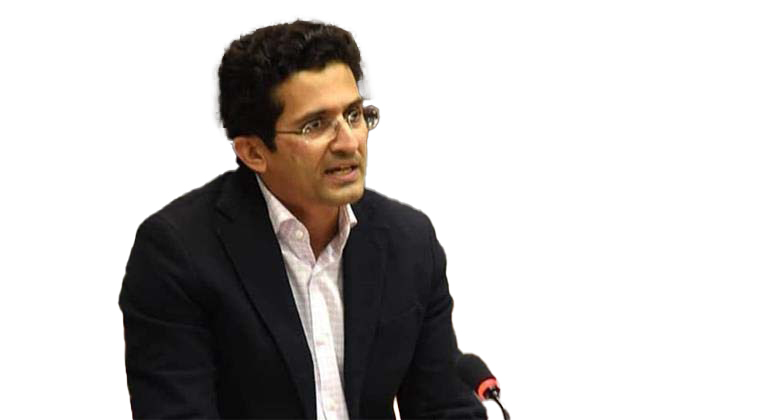
Ali Pervaiz Malik
Minister of State for Finance, Revenue, and Power

Mr. Nasruminallah Mian
Head of Program & Digital/ICT Sector, Asian Development Bank (ADB)

Dr. Hamid Ateeq Sarwar
Member (Inland Revenue – Operations), Federal Board of Revenue (FBR), Pakistan

Dr. Mahmood Khalid
Project Director (CPEC) / Senior Research Economist, PIDE

Mr. Tobias Haque
Lead Country Economist, The World Bank – Pakistan
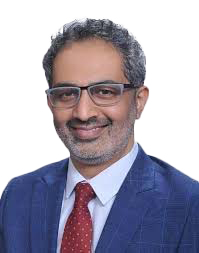
Dr. Ali Salman
Executive Director, Policy Research Institute of Market Economy (PRIME)

Ms. Hina Usmani
Managing Partner, Usmani & Co.

Dr. Ikramul Haq
Tax Expert

Professor Michael Spence
Nobel Laureate & Senior Fellow at the Hoover Institution, Stanford University

Dr. Huma Baqai
Rector, Millennium Institute of Technology and Entrepreneurship (MITE), Karachi

Professor Dr. Khalid Hafeez
Vice Chancellor of BUITEMS, Quetta

Ms. Wajiha Qamar
State Minister, MoFE&PT

Ms. Amena Aly Kamal
Member, Ministry of Planning, Development & Special Initiatives (MoPD&SI)

Dr. Hadia Majid
Chairperson, Economics, LUMS
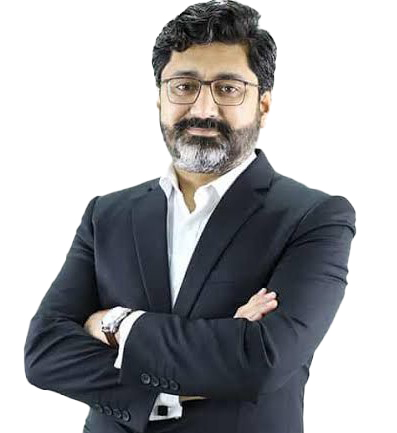
Dr. Faheem Jehangir Khan
Director Policy, PIDE

Ms. Mahnoor Salman
Senior AI Engineer and Machine Learning Instructor at atomcamp

Dr. Shujaat Farooq
Chief of Research / Director (Research) PIDE

Ms. Saima Hashim
Ambassador, Akhuwat Foundation Pakistan

Dr. Muhammad Naveed Iftikhar
Adjunct Faculty member at the Suleman Dawood School of Business, LUMS

Prof. Dr. Muhammad Zubair Iqbal
Current Vice Chancellor of Bahauddin Zakariya University (BZU), Multan
.jpg)
Professor Dr. Fazal Ahmad Khalid, SI, (Sitara-i-Imtiaz)
Rector of the Ghulam Ishaq Khan Institute (GIKI)
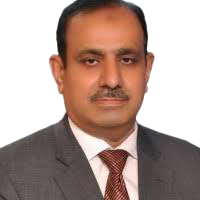
Professor Dr. Jamil Ahmad
Seasoned academic and administrator

Dr. Saad Liaqat Kiani
Chief Technology Officer (CTO) of Thunder Energy

Dr. Nadia Tahir
Senior Associate (MP-II), Economic Transformation, Prime Minister's Office, Pakistan

Dr. Sohaib S. Hassan
Member, Private Sector Development & Competitiveness (PSD&C), Planning Commission

Dr. Waqas Anwar
Member (Infrastructure & Regional Connectivity), Planning Commission of Pakistan

Humaira Zia Mufti
Additional Secretary-I, SIFC, Establishment Division, Government of Pakistan

Mr. Jiang Zaidong
Ambassador of the People's Republic of China to Pakistan

Dr. M. Muzammil Zia
Regional Connectivity and Infrastructure Specialist CPEC, MoPD&SI

Prof. Dr. Yuan Li
Institute of International Studies, Shandong University, China (CPEC & BRI expert)

Dr. Manzoor Ahmad
Senior Trade Policy Expert & Former Ambassador to the WTO

Ahmed Bilal Masud
Deputy CEO, Huawei Pakistan

Muhammad Imaduddin
Director, Digital Innovations & Settlements Department (DI&SD), State Bank of Pakistan

Mr. Eitzaz Ahmed
Economist

Ms. Shaza Fatima Khawaja
Federal Minister, MoIT&T

Rana Ihsaan Afzal Khan
Coordinator to the Prime Minister of Pakistan

Muhammad J. Sear
Digital Government and Public Sector Leader for EY MENA

Professor Dr. Asma Hyder
Dean of the School of Economics and Social Sciences (SES) at IBA, Karachi
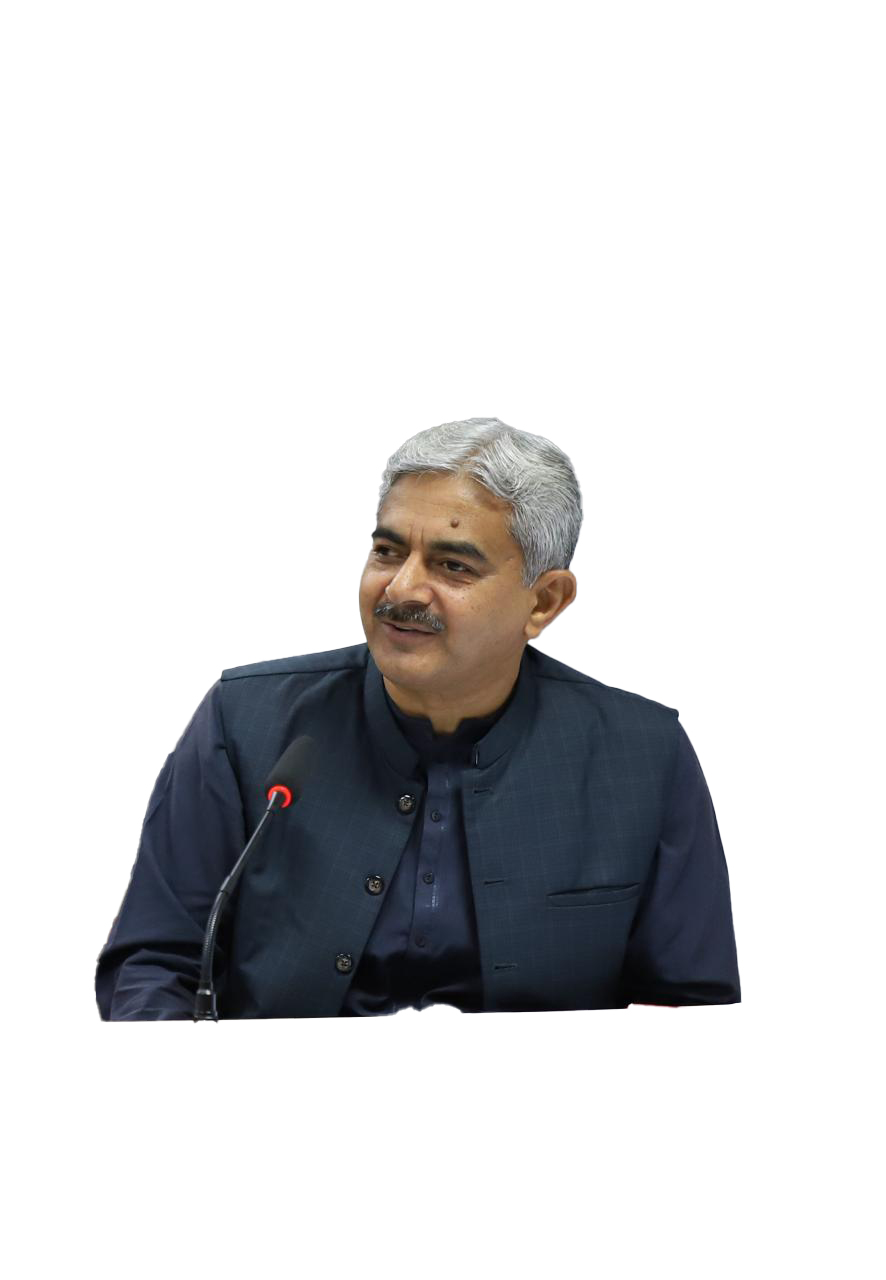
Dr. Imtiaz Ahmed
Chief Economist at Pakistan's Ministry of Planning, Development & Special Initiatives (MoPD&Si)

Dr. Iftikhar Ahmed
Head of the School of Economics at the Pakistan Institute of Development Economics (PIDE)

Ishaq Dar
Politician, Economist, Chartered Accountant (PML-N)

Zahid Akhtar Zaman
Chief Secretary of Punjab
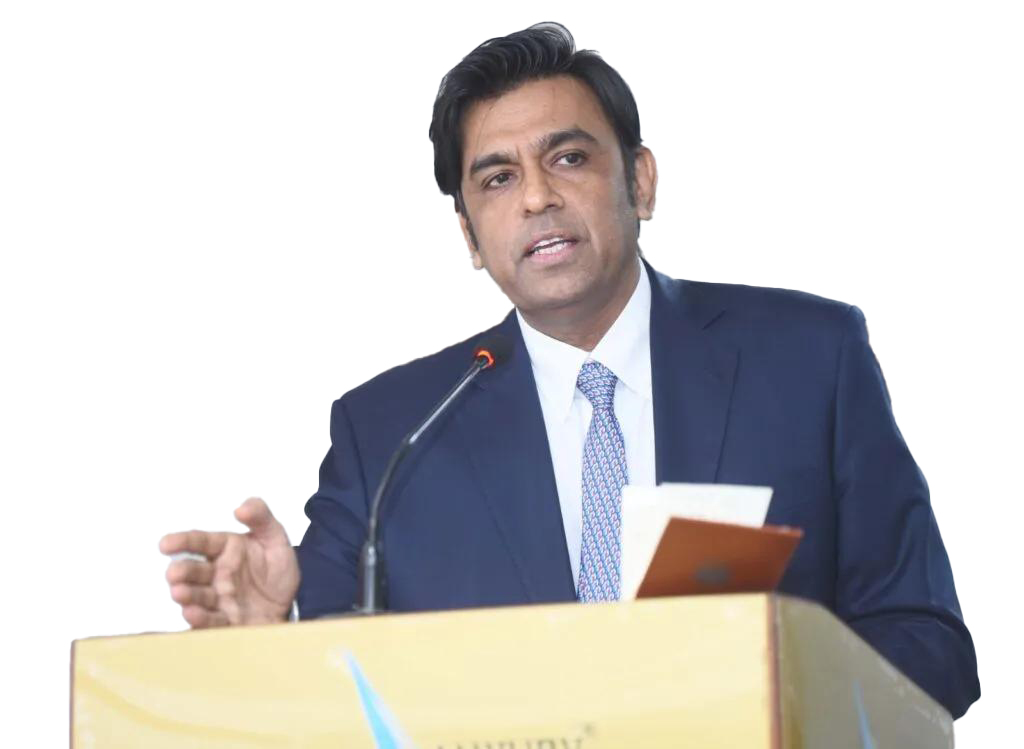
Syed Asif Hyder Shah
Chief Secretary of Sindh

Shakeel Qadir Khan
Chief Secretary of Balochistan

Syed Shahab Ali Shah
Chief Secretary of Khyber Pakhtunkhwa
 Khushal Khan (T_ST) .jpg)
Flt. Lt. (Retd.) Khushal Khan (T.ST)
Chief Secretary of Azad Jammu & Kashmir
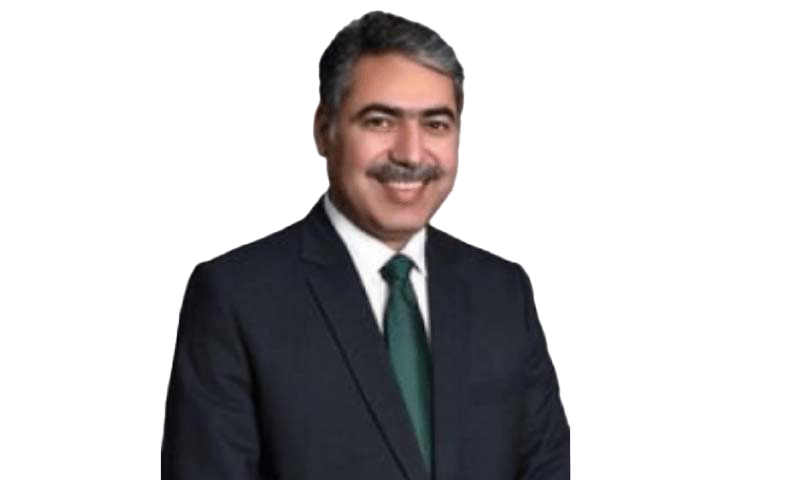
Mr. Abrar Ahmed Mirza
Chief Secretary of Gilgit-Baltistan (GB)

Dr. Usman Qadir
Senior Research Economist, PIDE

Dr. Madiha Riaz
Islamia University Bahawalpur

Hashim Raza
Prime Minister's Office
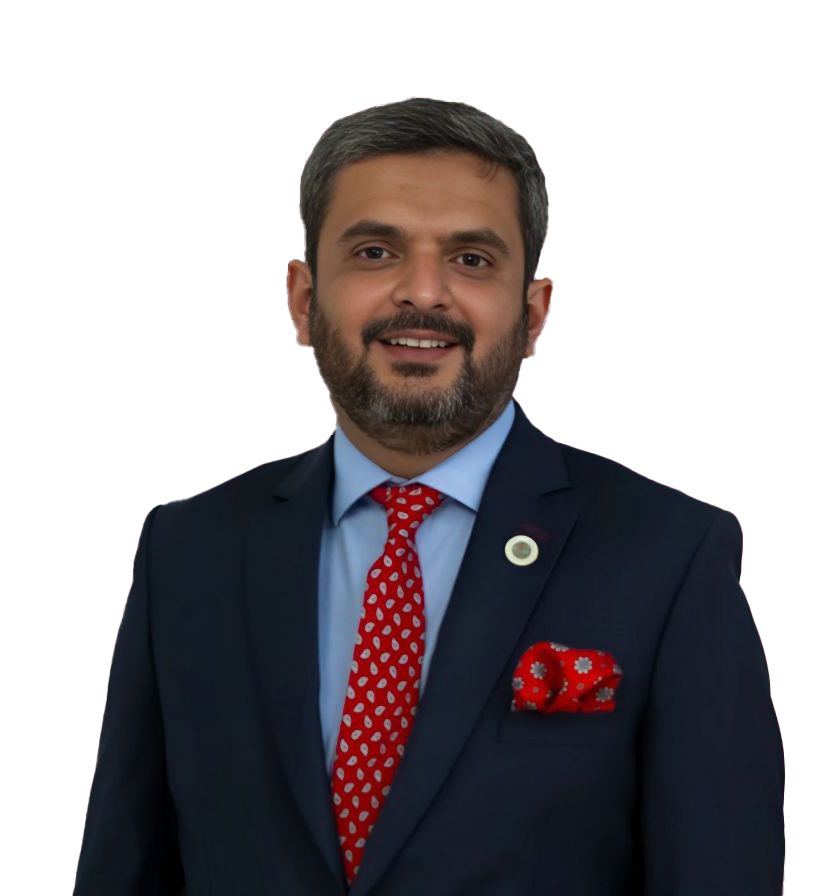
Hassan W Raja
Associate Professor (Practice), NUST Business School

Dr. Saba Anwar
Senior Research Economist, PIDE

Dr. Ahsan Ul Haq Satti
Associate Professor (Practice), NUST Business School

Dr. Bashir Khan
Deputy Director, HEC

Prof. Ahsan Iqbal
Chancellor, PIDE/Federal Minister for MoPD&SI
Prof. Ahsan Iqbal is a visionary leader, serving Pakistan as the Federal Minister for the Ministry of Planning Development and Special Initiatives. Prof. Iqbal also serves as the Secretary General of the Pakistan Muslim League (N). He has been a member of the National Assembly of Pakistan since August 2018. He served as Minister for Interior and Minister for Planning, Development and Reforms from 2017 to May 2018. He also served as the Deputy Chairman of the Planning Commission of Pakistan from 1998 to 1999. Prof. Iqbal also leads the revolutionary 5Es framework, which aims to accelerate Pakistan's economy through evidence-based and policy-informed research.
.jpg)
Dr. Nadeem Javaid (SI)
Vice Chancellor, PIDE/President, PSDE
Dr. Nadeem Javaid (SI) is an accomplished economist and academic, currently serving as the Vice Chancellor of PIDE. Dr. Javaid has previously served as the Chief Economist at the Planning Commission of Pakistan, where he played a key role in shaping national economic policy and long-term planning frameworks. He has also been actively involved in initiatives related to CPEC (China-Pakistan Economic Corridor), regional integration, and industrial policy. As Vice Chancellor, he has reinvigorated PIDE's role as a hub for cutting-edge research and evidence-based policymaking. Dr. Javaid is a vocal advocate for structural reform, institutional efficiency, and sustainable economic growth and continues to mentor the next generation of economists and policymakers in Pakistan.

Mr. Awais Manzur Sumra
Secretary, MoPD&SI, Government of Pakistan
Mr. Awais Manzur Sumra serves as the Secretary of the Ministry of Planning, Development & Special Initiatives (MoPD&SI), where he oversees Pakistan's national development agenda, including the Public Sector Development Programme (PSDP) and strategic initiatives like the China-Pakistan Economic Corridor (CPEC). Mr. Sumra has been instrumental in promoting productivity, quality, and innovation as key pillars for enhancing Pakistan's industrial competitiveness. He also emphasises the importance of digital transformation in public sector planning. Mr. Sumra also actively engages with stakeholders across government, academia, and industry to foster collaborative approaches to national development challenges.

Dr. Nasir Iqbal
Associate Professor & Registrar, PIDE
Dr. Nasir Iqbal is a distinguished economist and academic leader with over 17 years of experience in economic policy research, institutional governance, and social protection program design. He is the Associate Professor and Registrar at the Pakistan Institute of Development Economics (PIDE), where he also heads the Macro Policy Lab. His areas of specialization encompass trade, poverty, governance, policy design, and social protection. Dr. Iqbal also led the research wing of the Benazir Income Support Program (BISP), as the Additional Director General, where he was instrumental in the design and implementation of macroeconomic models, graduation models, socioeconomic surveys, and data quality assurance mechanisms.

Mr. Asim Saeed
Former Member (Private Sector Development & Competitiveness), Ministry of Planning, Development & Special Initiatives
Mr. Asim Saeed is a seasoned financial expert and public policy strategist. As a Member of the Planning Commission, he led the Private Sector Development & Competitiveness portfolio, where he championed institutional reforms to improve Pakistan's economic performance and private sector engagement. Prior to his public sector role, he spent over two decades in international banking with Citibank, operating across Pakistan, Singapore, Hong Kong, and Qatar. He executed over 75 high-value deals, raising more than $50 billion across capital markets, investment banking, and structured finance. He continues to contribute to national discourse on economic modernization and institutional reform through thought leadership and policy advocacy.

Mr. Saleem Ullah
Deputy Governor (Finance, Inclusion & Innovation), State Bank of Pakistan
As the Deputy Governor of the State Bank of Pakistan (SBP), Mr. Saleem Ullah oversees five key groups: Digital Financial Services, Financial Inclusion, Information Technology, Human Resources & Services, and Finance & Risk Management. His prior roles include Executive Director of Financial Resource Management and Director positions in Agricultural Credit, Development Finance, Islamic Banking, and Microfinance. Notably, he led the digitization of FBR tax collections and provincial receipts, significantly enhancing efficiency and taxpayer convenience. He also developed the Islamic version of the Naya Pakistan Certificates, integrating Shariah-compliant investment options.

Dr. Najeebullah Marwat
Member (Science, Technology & ICT), Planning Commission, Government of Pakistan
Dr. Najeebullah Marwat is a distinguished scientist and policymaker serving as Member (Science, Technology & ICT) at Pakistan's Planning Commission. Dr. Marwat has led significant initiatives in Pakistan, including establishing the US-Pak Center for Advanced Studies in Energy with USAID funding and founding the University of Engineering and Applied Sciences in Swat, securing PKR 13 billion for its development. He also facilitated a 25% faculty development waiver at Cambridge for UEAS. In his role at the Planning Commission, Dr. Marwat focuses on fostering innovation, enhancing research quality, and promoting technology transfer to advance Pakistan's science and technology sectors.
 Fan.jpg)
Ms. Xiaoqin (Emma) Fan
Country Director for Pakistan, Asian Development Bank (ADB)
Ms. Xiaoqin (Emma) Fan serves as the Country Director for Pakistan at the ADB. With over two decades at ADB, she has held various leadership positions, including Director of the Public Management, Financial Sector, and Regional Cooperation Division in the East Asia Department, and Regional Director of ADB's Pacific Liaison and Coordination Office in Sydney. Her extensive experience encompasses public sector management, financial sector development, and regional cooperation initiatives. In her current role, Ms. Fan oversees ADB's operations in Pakistan, focusing on implementing the country partnership strategy aimed at enhancing economic growth, resilience, and competitiveness.

Dr. Baber Majid Bhatti
Chief Executive Officer, National Information Technology Board (NITB)
Dr. Baber Majid Bhatti is the Chief Executive Officer of Pakistan's National Information Technology Board (NITB), where he leads initiatives to modernize public sector digital infrastructure. Under his leadership, NITB launched the "Digital Dialogue" platform, fostering collaboration between government and technology stakeholders. Dr. Bhatti has also emphasized the importance of celebrating women's achievements in technology, notably during International Women's Day 2025. Dr. Bhatti is also the co-author of the book Spies in the Bits and Bytes: The Art of Cyber Threat Intelligence, reflecting his expertise in cyber threat analysis.

Ms. Fatima Akhtar
Head of Communications and Sustainability, Jazz Pakistan
Ms. Fatima Akhtar serves as the Head of Communications and Sustainability at Jazz Pakistan. In her role, she leads strategic initiatives aimed at bridging the mobile gender gap and promoting digital inclusion. Under her leadership, Jazz has partnered with the GSMA Connected Women Commitment to connect more women to mobile internet services in Pakistan. She has also represented Jazz at international platforms, including MWC Barcelona 2024, highlighting the company's commitment to digital equity. Ms. Akhtar combines her academic background with extensive experience in communications, sustainability, and policy advocacy to drive impactful change in Pakistan's digital landscape.

Mr. Asim Ghaffar
Vice President of Engineering, 10Pearls
Mr. Asim Ghaffar is the Vice President of Engineering at 10Pearls, a global digital transformation company. Prior to his current role, Mr. Ghaffar co-founded EasyFresh Technologies, focusing on B2B fresh product supply chains, and served as Vice President of Engineering & Innovation at Cityscape Real Estate Ltd. His career also includes significant positions at Zameen.com and LMKR, where he was instrumental in product development and team growth. He is also a Founding Partner at elegsys and has contributed to initiatives like the AI Summit 2024, where he spoke on demystifying Generative AI. His commitment to technological innovation continues to drive impactful solutions in the digital landscape.

Prof. Dr. Niaz Ahmed Bhutto
Professor & Dean, Faculty of Management Sciences, Sukkur IBA University
Prof. Dr. Niaz Ahmed Bhutto is a distinguished economist and academic leader, currently serving as Professor of Economics and Dean of the Faculty of Management Sciences at Sukkur IBA University. Dr. Bhutto has over 23 years of teaching and research experience, with expertise in game theory, input-output economics, sustainable development, and international trade. He has published extensively in reputable journals and has been recognized with the HEC Best University Teacher Award in 2010.

Dr. Karim Khan
Associate Professor & Dean Faculty of Social Sciences, Pakistan Institute of Development Economics (PIDE)
Dr. Karim Khan is an Associate Professor at the Pakistan Institute of Development Economics (PIDE), Islamabad. With a career spanning over two decades at PIDE, he has held various leadership roles, including Dean of the Faculty of Social Sciences, Director of the Office of Research, ORIC, and Head of the Department of Economics & Econometrics. Dr. Khan's research focuses on political economy, governance, institutions, conflict, trade, and migration. He has published extensively in national and international journals and contributes to policy discourse through media engagements.
.jpg)
Dr. Naeem uz Zafar (SI)
Chief Statistician, Pakistan Bureau of Statistics (PBS)
Dr. Naeem uz Zafar serves as the Chief Statistician at the Pakistan Bureau of Statistics (PBS). His diverse career spans engineering, academia, and public policy. As Member Social Sectors at the Planning Commission, he introduced the Multidimensional Poverty Index and transitioned poverty estimation to the Cost of Basic Needs method. At UNDP, he facilitated SDG institutionalization across federal and provincial levels. As Chief Economist for Sindh, he led the Planning & Development Department's Technical Committee and oversaw foreign aid initiatives. Currently, he is spearheading the development of PBS's Tier 3 Data Center to enhance national data infrastructure. In recognition of his contributions, he was awarded the Sitara-i-Imtiaz.

Dr. Zahid Asghar
Professor & Director, School of Economics, Quaid-i-Azam University (QAU), Islamabad
Dr. Zahid Asghar is a Professor and Director at the School of Economics, Quaid-i-Azam University (QAU), Islamabad. Dr. Asghar's expertise lies in applied econometrics, development economics, official statistics, and urban economics. His research has been published in reputable journals, including Physica A and Communications in Statistics. He has served as the Registrar of QAU and as a Subject Specialist in Econometrics at the National Institute of Banking and Finance (NIBAF), State Bank of Pakistan. Dr. Asghar is actively involved in capacity-building initiatives, conducting trainings on econometrics, data visualization, and policy analysis.

Dr. Jordanka Tomkova
Digital Policy and Roadmap Development Expert, Asian Development Bank (ADB)
Dr. Jordanka Tomkova is a Digital Policy and Roadmap Development Expert at the Asian Development Bank (ADB). Dr. Tomkova has led significant digital transformation initiatives, including the Digital Ecosystem Diagnostic Report 2024 for Pakistan, highlighting the country's robust IT sector and digital potential. Her research emphasizes digital inclusion, mobile connectivity, and the advancement of digital services across various sectors. She has also contributed to understanding the democratic deficits in EU institutions and the role of ICT in political engagement.

Dr. Farhat Mehmood
Lecturer, Pakistan Institute of Development Economics (PIDE), Islamabad
Dr. Farhat Mehmood is a Lecturer at the Pakistan Institute of Development Economics (PIDE), Islamabad. Dr. Mehmood's research interests encompass international economics, corporate finance, and macroeconomics. She has contributed to policy-relevant research, including studies on the impact of free trade agreements on Pakistan's trade dynamics and sustainable microfinance models. Her work has been published in journals such as the Journal of South Asian Development. Beyond academia, she has served as a consultant for organizations like SDPI and has been involved in projects funded by JICA.

Prof. Dr. Mumtaz Anwar Chaudhry
Dean, Faculty of Business, Economics & Administrative Sciences, University of the Punjab
Prof. Dr. Mumtaz Anwar Chaudhry is a distinguished economist and academic leader, currently serving as the Dean of the Faculty of Business, Economics & Administrative Sciences at the University of the Punjab, Lahore. His research interests encompass political economy, economic development, governance, and development policy. He has extensively published in renowned journals, including the Review of Development Economics. Dr. Chaudhry has held significant administrative positions, such as Vice Chancellor of the University of Jhang and Chairman of the Punjab Examination Commission. He also served as Director of the Punjab Economic Research Institute (PERI), contributing to policy-relevant research for the Government of Punjab.

Dr. Zahoor Khan
Associate Professor of Development Economics, Institute of Management Sciences (IMSciences), Peshawar
Dr. Zahoor Khan is a tenured Associate Professor of Development Economics at IMSciences, Peshawar. He is an IFC-World Bank certified master trainer and has conducted capacity-building programs on financial inclusion and microfinance in countries including Rwanda, Zambia, Indonesia, and the UK. Dr. Khan has collaborated with international organizations such as the Asian Development Bank and UK-DFID. His research focuses on microfinance, Islamic finance, poverty alleviation, and sustainable development. He has presented his work at esteemed institutions, including Harvard University.

Dr. Safdar Sohail
Executive Director, Social Protection Resource Centre (SPRC)
Dr. Safdar Sohail is a seasoned policy expert, academic, and retired civil servant with a distinguished career spanning over three decades. Currently serving as the Executive Director of the Social Protection Resource Centre (SPRC) in Islamabad, he plays a leading role in research and advocacy for inclusive and universal social protection in Pakistan. Dr. Sohail has held significant government positions, including Special Secretary to the Cabinet Division and Pakistan's Economic Minister to the EU. His work bridges policymaking, research, and activism, championing equitable growth and institutional reform in Pakistan's development landscape.

Prof. Pier Paolo Saviotti
Universite Pierre-Mendes-France
Prof. Pier Paolo Saviotti is a renowned Italian economist celebrated for his groundbreaking contributions to evolutionary economics, innovation studies, and the economics of knowledge. Dr. Saviotti's work explores how innovation, knowledge diversity, and technological change drive economic evolution. With over 200 scholarly publications, including the influential Innovation, Complexity and Economic Evolution, he has laid foundational theories on knowledge-based growth and structural transformation. His thought leadership continues to inspire global discourse on innovation and economic development.

Dr. Shazia Akhtar
Head of the Department of Management Sciences, SZABIST
With over 25 years of experience in academia, research, and corporate training, Dr. Shazia Akhtar has made significant contributions to the fields of Human Resource Management, Organizational Psychology, and Strategic Management. Her extensive research, which includes more than 50 publications, focuses on leadership, organizational behavior, project management, and career development. Dr. Akhtar is also known for her expertise in sustainability and climate change adaptation within organizational contexts. She also has over two decades of experience in the corporate sector, offering training and consultancy services in areas such as change management, team building, and inclusive leadership.

Dr Adnan Rafiq
Member Governance, MoPD&SI
Dr. Adnan Rafiq is a distinguished political scientist and public policy analyst. Since October 2022, he has served as the Member (Governance, Innovation & Reforms) at the Planning Commission of Pakistan, operating under the Ministry of Planning, Development & Special Initiatives (MOPD & SI). In his role, Dr. Rafiq plays a pivotal part in formulating, implementing, and monitoring the country's development policies. He has been instrumental in initiatives like the Baikhtiyar Naujwan Internship Program, aiming to enhance youth engagement in governance. His professional journey also includes serving as the Country Director for the United States Institute of Peace (USIP), where he contributed to peace-building efforts and policy analysis.

Dr. Idrees Khwaja
Former Chief of Research, PIDE
Dr. Muhammad Idrees Khawaja is a distinguished economist and researcher, who previously served as the Chief of Research at the PIDE. Dr. Khawaja's research interests span several areas including urban resilience, electricity provision, traffic management, and economic reforms. His notable works include publications on traffic management and parking policies for Islamabad Capital Territory. He has also critically analyzed Pakistan's growth model and advocated for shifting from traditional hardware-based infrastructure to software-focused development. Currently, he serves as the Chief Executive Officer of Taleeminfo.pk, an educational platform that provides comprehensive information about academic opportunities in Pakistan.

Mr. Fazal Muhammad
Former Head, NPGP, MOPA&SS
Mr. Fazal Muhammad is a seasoned development professional who formerly led the National Poverty Graduation Programme (NPGP) under the Ministry of Poverty Alleviation and Social Safety (MOPA). In this role, he oversaw a significant initiative aimed at uplifting marginalized communities through sustainable livelihood programs. His leadership was instrumental in aligning national poverty alleviation strategies with global Sustainable Development Goals (SDGs). Mr. Muhammad continues to advocate for inclusive growth and sustainable development in Pakistan. His work serves as a testament to the impact of visionary leadership in the public sector.

Dr. Talat Anwar
SBP Memorial Chair, Bahauddin Zakariya University
Dr. Talat Anwar is a distinguished economist currently holding the I.A. Hanfi State Bank of Pakistan (SBP) Memorial Chair at the School of Economics, Bahauddin Zakariya University (BZU) in Multan. With over 55 research publications across diverse economic disciplines, his scholarly work significantly contributes to the field. His expertise encompasses areas such as monetary policy, fiscal economics, and development economics. Dr. Anwar actively engages in seminars and forums, providing valuable insights on economic issues, including the linkage between monetary policy and international financial frameworks.

Mr. Zafar ul Hassan
MoPD&SI
Mr. Zafar ul Hassan is a distinguished Pakistani economist and civil servant, currently associated with the Ministry of Planning Development and Special Initiatives. He plays a pivotal role in shaping and implementing macroeconomic policies that drive the nation's economic growth. Mr. Hassan has previously held key positions, including Chief of the Poverty Alleviation and Sustainable Development Goals (SDGs) Section from 2014 to 2018, where he was instrumental in devising and executing strategies aimed at poverty reduction and sustainable development. He also served as Project Director for Pakistan's SDG initiatives, contributing significantly to the formulation of the National SDG Framework in 2018 and the Social Protection Framework in 2016. His earlier roles include Chief of the Macroeconomic Section, Joint Economic Adviser at the Ministry of Finance, and Deputy Secretary at the Ministry of Finance, reflecting a robust career in economic policy and planning.

Dr. Muhammad Jamil
SBP Chair, AJK
Dr. Muhammad Jamil is a distinguished economist and academic, currently serving as the Ghulam Ishaq Khan Memorial Chair at the Kashmir Institute of Economics, University of Azad Jammu & Kashmir (UAJK), Muzaffarabad. His research expertise encompasses financial economics, welfare economics, applied econometrics, and public policy. Dr. Jamil has an impressive publication record, with over 30 peer-reviewed articles and more than 22,000 reads on ResearchGate. As the Managing Editor of the Kashmir Economic Review, he plays a pivotal role in advancing economic scholarship.

Dr. Maqsood Aslam
Assistant Professor, Quaid-i-Azam University
Dr. Maqsood Aslam is an Assistant Professor at the School of Economics, Quaid-i-Azam University, where he contributes significantly to the academic and research environment. Dr. Aslam's research interests encompass international trade, development economics, and applied econometrics. He has published articles in reputable journals and has been an active participant in various academic conferences. His professional affiliations include memberships in national and international economic associations.

Ali Pervaiz Malik
Minister of State for Finance, Revenue, and Power
Mr. Ali Pervaiz Malik is a prominent Pakistani politician currently serving as the Minister of State for Finance, Revenue, and Power. Under his leadership as a State Minister, significant progress has been made toward economic stability, with notable improvements in foreign exchange reserves, reductions in inflation rates, and positive trends in key economic indicators. Mr. Pervaiz emphasizes the government's commitment to achieving long-term economic stability through structural reforms, fiscal discipline, and broadening the tax net.

Mr. Nasruminallah Mian
Head of Program & Digital/ICT Sector, Asian Development Bank (ADB)
Nasruminallah Mian is a seasoned development professional with over two decades of experience spanning both public and private sectors. Currently, he serves as the Head of Program & Digital/ICT Sector at the Asian Development Bank's Pakistan Resident Mission. In this role, he oversees country operations programming and acts as the focal point for the Central Asia Regional Economic Cooperation (CAREC) program and ICT initiatives. His professional interests are centered around leveraging technology for development.

Dr. Hamid Ateeq Sarwar, Member, FBR
Member (Inland Revenue – Operations), Federal Board of Revenue (FBR), Pakistan
Dr. Hamid Ateeq Sarwar is a seasoned civil servant and tax policy expert with over 30 years of experience in Pakistan's Inland Revenue Service. Currently, he serves as the Member (Inland Revenue – Operations) at the FBR, where he oversees the operational aspects of inland revenue collection and administration. Throughout his career, he has held various key positions, including Chief Commissioner of Rawalpindi, Member of the FBR Policy Board, and Additional Secretary in the Ministry of Industries & Production. Dr. Sarwar has also contributed to academia by teaching Economics and Decision-Making at the Civil Services Academy and has been teaching Tax Laws and Auditing at the Tax Academy intermittently. In recognition of his significant contributions to public service, Dr. Sarwar was honored with the Sitara-e-Imtiaz by the Government of Pakistan.

Dr. Mahmood Khalid
Project Director (CPEC) / Senior Research Economist, Pakistan Institute of Development Economics (PIDE)
Dr. Mahmood Khalid is a distinguished economist and policy researcher with over 20 years of experience in economic modeling, development analysis, and fiscal policy research. He currently serves as Project Director for the China-Pakistan Economic Corridor (CPEC) and Senior Research Economist PIDE. Dr. Khalid's research portfolio spans macroeconomic forecasting, public investment efficiency, poverty dynamics, taxation, and development planning. He is recognized for applying cutting-edge economic tools—including computable general equilibrium (CGE) models, cost-benefit analyses, and public expenditure tracking—to inform policy design and resource allocation.

Mr. Tobias Haque
Lead Country Economist, The World Bank – Pakistan
Mr. Tobias Haque is a seasoned development economist and public finance expert, serving as the Lead Country Economist for the World Bank in Pakistan. With over 15 years of international experience across Asia, the Pacific, and the Middle East, Mr. Haque has advised governments on macroeconomic management, budget reforms, public investment planning, tax policy, and institutional development. He has also served in several senior economist roles with the World Bank and other development institutions in countries including Afghanistan, Maldives, Timor-Leste, and the Solomon Islands. He has led major analytical initiatives such as the Pakistan Development Update (PDU) and has contributed to flagship publications and advisory services related to tax reform, climate finance, public-private partnerships, and social protection systems.

Dr. Ali Salman
Executive Director, Policy Research Institute of Market Economy (PRIME)
Dr. Ali Salman is the founder and Executive Director of PRIME. Dr. Salman also serves as the Chief Executive Officer of the Islam & Liberty Network, a global platform that explores and promotes the compatibility of Islamic principles with modern ideas of freedom—including economic liberty, human rights, and democratic governance. In Kuala Lumpur, he held the position of Chief Executive Officer of IDEAS (Institute for Democracy and Economic Affairs)—Malaysia's most influential free-market think tank. Dr. Salman's areas of expertise include economic governance, fiscal policy, digital transformation, trade, education reform, and development economics. Dr. Salman is the author of "Islam and Economics: Markets, Morality and Justice", a widely acclaimed book that articulates a coherent Muslim perspective on market economics, justice, and moral responsibility.

Ms. Hina Usmani
Managing Partner, Usmani & Co.
Ms. Hina Usmani is the Founder and Managing Partner of Usmani & Co., Pakistan's first all-women-led accountancy practice. Ms. Usmani is also a Fellow Member of the Institute of Chartered Accountants of Pakistan (ICAP) and the Institute of Corporate Secretaries of Pakistan (ICSP). Her areas of expertise include audit, tax advisory, corporate governance, business process transformation, and financial compliance. Ms. Usmani holds the distinction of being the first woman elected as Council Member and later Vice President of ICAP. She currently chairs the CA Women Committee at ICAP. She also serves as Chair of the Women Leadership Committee of the South Asian Federation of Accountants (SAFA). Her firm, Usmani & Co., is a proud signatory of the United Nations Women's Empowerment Principles (WEPs), demonstrating its commitment to promoting gender equity, flexible workplace policies, and capacity-building for women professionals.

Dr. Ikramul Haq
Tax Expert
Dr. Ikramul Haq is a senior legal professional, academic, and policy advocate. He serves as an Advocate at the Supreme Court of Pakistan and is internationally recognized for his extensive contributions to tax policy, fiscal law, and governance reform. Dr. Haq has played a key role in shaping Pakistan's tax discourse. Dr Haq has authored multiple books and scholarly articles on taxation, constitutional economics, white-collar crime, and fiscal transparency, which are used as reference texts by legal and accounting professionals, policymakers, and students. His research and recommendations have informed policy debates at FBR, State Bank of Pakistan, Ministry of Finance, and international development agencies. He is also a founding partner of Huzaima & Ikram, a renowned legal and tax advisory firm based in Lahore, which provides consultancy services to corporate clients, financial institutions, and government agencies.

Professor Michael Spence
Nobel Laureate & Senior Fellow at the Hoover Institution, Stanford University
Professor Michael Spence is a distinguished economist who was awarded a Nobel Prize in 2001. He currently serves as a Senior Fellow at the Hoover Institution at Stanford University and is the Philip H. Knight Professor Emeritus of Management at the Stanford Graduate School of Business. Professor Spence has held significant leadership roles, including serving as Dean of the Faculty of Arts and Sciences at Harvard University and later as Dean of the Stanford Business School. He also chaired the Commission on Growth and Development, an initiative that analyzed the policies and strategies underpinning rapid and sustained economic growth in developing countries. An accomplished author, his notable works include The Next Convergence: The Future of Economic Growth in a Multispeed World, where he explores the dynamics of global economic development.

Dr. Huma Baqai
Rector, Millennium Institute of Technology and Entrepreneurship (MITE), Karachi
Dr. Huma is currently serving as the Rector at MITE, Karachi. She has also served as Associate Professor of Social Sciences & Liberal Arts and Associate Dean of the Faculty of Business Administration at IBA Karachi. With over two decades of experience, she is an acclaimed academic, media analyst, policy expert, and international relations scholar. Dr. Baqai is the author and co-editor of Pakistan-Afghanistan Relations: Pitfalls and Way Forward (2021) and Making Sense of Post COVID-19 Politics (2020). She has appeared in over 1,000 televised programs and participated in more than 200 national and international conferences and webinars. Her media affiliations include PTV, Channel 24, News One, Radio Pakistan, and Voice of America.

Professor Dr. Khalid Hafeez
Vice Chancellor of BUITEMS, Quetta.
With over 30 years of global experience in academia, research, and institutional leadership, Dr. Khalid Hafeez is the first Pakistani to earn a PhD in Artificial Intelligence and Robotics from Cardiff University, UK. He has held senior roles in top universities, including De Montfort University, University of York, and University of West London. Dr. Hafeez is a Harvard-certified executive leader, a Six Sigma Master Black Belt, and an internationally recognized researcher with over 100 publications and 3,500+ citations.

Ms. Wajiha Qamar
State Minister, MoFE&PT
Ms. Wajiha Qamar is the Minister of State for Federal Education and Professional Training. Ms. Wajiha Qamar has been involved in key initiatives, including the launch of mobile admission drives for vocational training at the National Skills University Islamabad. Her advocacy focuses on inclusive educational reforms and expanding access to technical and professional training. She has emphasized women's empowerment through education and supported skill-based learning for youth. As Minister of State, she continues to work on strengthening Pakistan's education system through policy reform and collaboration with national and international partners.

Ms. Amena Aly Kamal
Member, Ministry of Planning, Development & Special Initiatives (MoPD&SI)
Ms. Amena Ali Kamal is a senior official currently serving as a Member at MoPD&SI, where she plays a critical role in public policy formulation, strategic planning, and development initiatives. With a strong background in governance, institutional reforms, and evidence-based policy design, she has contributed to several national-level projects focusing on inclusive growth and digital transformation. She is a prominent voice on gender and youth inclusion in policymaking and regularly participates in high-level panels and forums.

Dr. Hadia Majid
Chairperson, Economics, LUMS
Dr. Hadia Majid is the Associate Professor and Chair of the Economics Department at LUMS, where she also serves as Director of GenTech and Senior Research Fellow at the Mahbub ul Haq Research Centre. Her research focuses on gender, labor markets, digital inclusion, and public goods provisioning, with recent publications in Urban Studies, Feminist Economics, and the Journal of Development Effectiveness. Dr. Majid is a member of the Research Advisory Committee at PIDE and a board member at the Consortium for Development Policy. Her work combines academic rigor with policy relevance, positioning her as a leading voice on gender and development economics in South Asia.

Dr. Faheem Jehangir Khan
Director Policy, PIDE
Dr. Faheem Jehangir Khan is Director (Policy), and Project Director of the RASTA Program at PIDE. He is a public policy expert with over 18 years of experience in policy research, training, and teaching. He currently leads RASTA, Pakistan's largest economics and public policy research network. He has previously worked with the National School of Public Policy (NSPP), UNDP, GIZ, and ILO, and has taught at various universities and training institutes across Pakistan. His areas of expertise include public policy processes, network governance, public sector management, and foreign aid.

Ms. Mahnoor Salman
Senior AI Engineer and Machine Learning Instructor at atomcamp
Senior AI Engineer and Machine Learning Instructor at atomcamp, where she also serves as a Co-founder. She holds an MBA from the National University of Sciences and Technology (NUST) and a Bachelor's degree in Electrical and Electronics Engineering from Air University. With a robust background in AI and data science, Mahnoor has previously worked as a Marketing Manager at sfadvisory and as an Artificial Intelligence Trainer at the Commission on Science and Technology for Sustainable Development in the South. She is also an Excel and Python instructor, and has initiated her own home apparel line, Tapestree. Mahnoor is passionate about data literacy and visualization, regularly sharing insights through her Medium blog. Her multifaceted experience bridges the gap between technical expertise and creative entrepreneurship.

Dr. Shujaat Farooq
Chief of Research / Director (Research) PIDE
He is an accomplished economist with extensive expertise in research and policy development across key areas including poverty alleviation, labor markets, education, health, rural economy, and social protection. With a Ph.D. from the Pakistan Institute of Development Economics, he brings over a decade of experience in applied research, monitoring and evaluation, and evidence-based policy design. His work focuses on enhancing socioeconomic outcomes through rigorous analysis and strategic planning, particularly in the domains of development economics and social safety nets.

Ms. Saima Hashim
Ambassador, Akhuwat Foundation Pakistan | Psychotherapist | Life Coach | Public Speaker | Mental Health Advocate
Ms. Saima Hashim serves as an Ambassador for the Akhuwat Foundation, a leading non-profit organization in Pakistan dedicated to poverty alleviation through interest-free microfinance, education, healthcare, and social support services. In her role, she actively promotes Akhuwat's mission of fostering economic empowerment and social inclusion across marginalized communities. Her engagement includes representing the foundation at various forums, facilitating partnerships, and advocating for sustainable development initiatives that align with Akhuwat's vision of a poverty-free society. In addition to her role at Akhuwat, Ms. Hashim is a certified psychotherapist and life coach, with a strong commitment to mental health advocacy. She has conducted interactive sessions on topics such as the impact of illness experiences on thinking patterns, aiming to help individuals meet their authentic selves.

Dr. Muhammad Naveed Iftikhar
Adjunct Faculty member at the Suleman Dawood School of Business, LUMS
Adjunct Faculty member at the Suleman Dawood School of Business, LUMS, where he teaches in the MS (Business & Public Policy) program. With nearly two decades of experience, he has worked extensively across public sector institutions, academia, international development organizations, and research centers. His research focuses on urban governance and economics, entrepreneurship, public-private partnerships, and public sector reforms. Dr. Naveed has contributed to numerous urban development initiatives and policy dialogues in cities across Pakistan. He previously served as a Governance Specialist at the Economic Reforms Unit of the Ministry of Finance, where he engaged in policy reform and institutional development. A serial entrepreneur and startup advisor, he also delivers training and lectures on public policy, urban economics, and governance. He regularly publishes in academic journals, policy forums, and newspapers. Dr. Naveed holds an MPhil in Economics and a PhD in Urban Affairs and Public Policy from the University of Delaware's Joseph R. Biden, Jr. School of Public Policy and Administration, where his dissertation focused on entrepreneurship, knowledge spillovers, and urbanization in Asia.

Prof. Dr. Muhammad Zubair Iqbal
Current Vice Chancellor of Bahauddin Zakariya University (BZU), Multan
Current Vice Chancellor of Bahauddin Zakariya University (BZU), Multan, appointed in September 2024 for a four-year term by the Punjab Higher Education Department. Before this role, he served as the Pro-Rector for Research and Strategic Initiatives at the National University of Modern Languages (NUML) Quetta campus. Dr. Iqbal holds an MA in English from BZU Multan and has pursued further studies at Westminster University in London and an institution in Thailand. In his capacity as Vice Chancellor, Dr. Iqbal emphasizes the importance of character development alongside academic excellence, advocating for values such as faith, discipline, tolerance, and compassion to build a knowledge-based and prosperous Pakistan. Under his leadership, BZU achieved recognition in the QS World University Rankings 2025, reflecting the university's commitment to modern research and innovative teaching methods. Dr. Iqbal has also held the position of Dean of the Faculty of Food Science and Nutrition at BZU, where he contributed to the faculty's growth in research and academia.
.jpg)
Professor Dr. Fazal Ahmad Khalid, SI, (Sitara-i-Imtiaz)
He esteemed Rector of the Ghulam Ishaq Khan Institute of Engineering Sciences and Technology (GIKI)
He esteemed Rector of the Ghulam Ishaq Khan Institute of Engineering Sciences and Technology (GIKI), a position he has held since 2021, having been appointed by the President of Pakistan. He earned his academic credentials with a BSc in Engineering from the University of Engineering and Technology (UET), Lahore in 1980, followed by an LL.B. from Islamia College, University of Karachi in 1985. Dr. Khalid further advanced his education with a D.Phil. in Materials Engineering from the University of Oxford in the UK in 1991. Additionally, he holds the titles of Chartered Engineer (CEng) in London and Professional Engineer (PEng) from the Pakistan Engineering Council (PEC). Dr. Khalid is a recognized figure in the academic and professional communities. He is a Fellow of several prestigious organizations, including the Royal Microscopical Society, Oxford, the Institute of Materials, Minerals and Mining (FIMMM) in London, and the Pakistan Academy of Sciences. His research is focused on the processing and characterization of materials, particularly nanomaterials and nanotechnology, with over 200 research papers published and a cumulative impact factor of 121. In terms of leadership and administrative roles, Dr. Khalid has significantly contributed to the advancement of engineering education in Pakistan. He served as the Vice Chancellor of UET Lahore from 2014 to 2018 and took on additional responsibilities as Acting Vice Chancellor at Punjab Tianjin University of Technology (PTUT) and held the additional charge of Vice Chancellor for Khawaja Fareed University of Engineering and Information Technology (KFUEIT), Rahim Yar Khan, and Muhammad Nawaz Sharif University of Engineering & Technology (MNS UET), Multan. He has also been a Vice Chairman of PEC and held roles as Pro-Rector (Academics) and Dean at GIKI from 1994 to 2014. Dr. Khalid's work has made significant contributions to aligning Pakistan's engineering education with international standards such as those outlined in the Washington Accord. He has been a staunch advocate for academia-industry linkages and the implementation of Outcome-Based Education (OBE) in engineering disciplines. Moreover, he has played a key role in promoting Continuous Professional Development (CPD) for engineers.

Professor Dr. Jamil Ahmad
Seasoned academic and administrator
Seasoned academic and administrator with over 28 years of experience in teaching, research, project management, and university leadership. He holds a PhD in Artificial Intelligence (Computer Sciences) from King's College London, UK, alongside an MSc in Information Technology for Manufacturing from the University of Warwick and an MSc in Computer Sciences from the University of Peshawar, graduating with two academic distinctions. Dr. Jamil Ahmad has served at leading institutions including GIK Institute, University of Bahrain, Iqra University Islamabad, Abasyn University, KUST, and Hazara University. He has held the prestigious position of Vice Chancellor at three different universities for over a decade, demonstrating his strategic leadership and academic vision. His expertise spans AI, computing, and higher education governance, making him a highly regarded figure in Pakistan's academic and technological landscape.

Dr. Saad Liaqat Kiani
Chief Technology Officer (CTO) of Thunder Energy
Chief Technology Officer (CTO) of Thunder Energy, a Pakistani company at the forefront of sustainable energy solutions. He co-led the development of the Thunder Intelligence Platform, integrating GenAI features to enhance energy management through AI and analytics, thereby improving efficiency and reducing environmental impact. Under his leadership, Thunder Energy launched Pakistan's first low-carbon Energy Storage as a Service (ESaaS) project, aiming to significantly reduce the telecom sector's carbon footprint. Dr. Kiani's work exemplifies the integration of advanced technology with sustainable practices, positioning Thunder Energy as a key player in Pakistan's transition to a greener energy future.

Dr. Nadia Tahir
Senior Associate (MP-II), Economic Transformation, Prime Minister's Office, Pakistan
Dr. Nadia Tahir is a distinguished economist and policy expert currently serving as a Senior Associate (MP-II) at the Prime Minister's Office of Pakistan. She holds MPhil and PhD degrees in Economics from Government College University (GCU), Lahore, and completed her postdoctoral research at the University of Cambridge. Dr. Tahir has over two decades of experience in academia and public policy. She served as the Managing Director of the Quality Assurance Agency at the Higher Education Commission (HEC) from March 2019 to March 2021, overseeing the evaluation of higher education institutions across Pakistan. In addition to her role at HEC, Dr. Tahir has been involved with the Lahore Chamber of Commerce and Industries, where she facilitated collaborations between academia and industry, including securing a significant grant from HEC for research initiatives. She is also associated with the Policy Research Institute of Market Economy (PRIME), contributing to economic policy and reform research.

Dr. Sohaib S. Hassan
Member, Private Sector Development & Competitiveness (PSD&C), Planning Commission of Pakistan
Prof. Dr. Sohaib S. Hassan is a distinguished economist and policy expert currently serving as the Member for Private Sector Development & Competitiveness (PSD&C) at the Planning Commission of Pakistan. Dr. Hassan's academic background includes a Ph.D. from the Max Planck Institute of Economics and Friedrich Schiller University Jena, Germany. He also holds an MBA from the University of Leipzig, Germany, and an MSc in Economics from the University of the Punjab, Pakistan. His professional experience encompasses academia and policy advisory roles. Prior to his current appointment, Dr. Hassan served as an Assistant Professor of Management Science and Business Analytics at Constructor University in Bremen, Germany. His research focused on strategic management, innovation, digitalization, and resilience, employing econometric and data analytic methods to explore organizational and regional dynamics. In his role at the Planning Commission, Dr. Hassan contributes to initiatives that foster public-private partnerships and promote industrial growth. He has been involved in high-level discussions and conferences addressing science, technology, and engineering advancements to bolster Pakistan's economic development.

Dr. Waqas Anwar
Member (Infrastructure & Regional Connectivity), Planning Commission of Pakistan
Dr. Waqas Anwar serves as the Member for Infrastructure and Regional Connectivity at the Planning Commission of Pakistan. In this capacity, he oversees the formulation and execution of the country's Annual and Five-Year National Plans, focusing on critical infrastructure sectors such as transport, communication, water resources, sanitation, and housing. Appointed in September 2022, Dr. Anwar brings a unique blend of experience from both military and civil services. He has been instrumental in implementing diverse infrastructure projects, including significant contributions to the Belt and Road Initiative (BRI) in challenging environments across the Subcontinent and Western Africa under United Nations auspices. Notably, he served as a senior project manager for the Western Route of the China-Pakistan Economic Corridor (CPEC), overseeing key projects such as N-85, M-8, and M-14. Dr. Anwar is a distinguished academic, holding two Ph.D. degrees in Industrial Engineering and Civil Engineering. His scholarly contributions are reflected in multiple publications and citations in the field of infrastructure development. In recognition of his meritorious services, Dr. Anwar has been honored with two military awards presented by the Chief of Army Staff of the Pakistan Army.

Humaira Zia Mufti
Additional Secretary-I, Special Investment Facilitation Council (SIFC), Establishment Division, Government of Pakistan
Humaira Zia Mufti is a seasoned BS-21 officer of the Secretariat Group currently serving as Additional Secretary-I in the Special Investment Facilitation Council (SIFC) Division. She was recently assigned to work under the SIFC Division within the Establishment Division, where her mandate focuses on enhancing investment facilitation processes and streamlining the regulatory framework to promote economic growth and competitiveness. In her role at SIFC, Ms. Mufti coordinates with various government departments and key stakeholders to implement reforms and improve service delivery in investment-related processes. As a dedicated public servant, Humaira Zia Mufti leverages her extensive experience in the federal bureaucracy to drive policy implementation and facilitate cross-agency collaboration, ensuring that investment facilitation strategies align with national economic priorities.

Mr. Jiang Zaidong
Ambassador of the People's Republic of China to Pakistan
Ambassador Jiang Zaidong is a seasoned Chinese diplomat currently serving as the Ambassador to Pakistan since September 2023. He joined the Chinese Ministry of Foreign Affairs in 1992 and has held various significant positions, including serving as the Chinese Ambassador to Laos from October 2018 to August 2023. In his role as Ambassador to Pakistan, Jiang Zaidong has been instrumental in advancing the China-Pakistan Economic Corridor (CPEC), a flagship project under China's Belt and Road Initiative.

Dr. M. Muzammil Zia
Regional Connectivity and Infrastructure Specialist CPEC, MoPD&SI
Dr. M. Muzammil Zia is a distinguished expert in regional connectivity and infrastructure, currently serving at the China-Pakistan Economic Corridor (CPEC) Secretariat under Pakistan's Ministry of Planning, Development & Special Initiatives. His role involves strategic oversight of infrastructure development and regional integration initiatives, particularly within the framework of the Belt and Road Initiative (BRI). With a Ph.D. in International Relations, Dr. Zia's academic background complements his professional endeavors, enabling him to contribute effectively to policy formulation and implementation.

Prof. Dr. Yuan Li
Institute of International Studies, Shandong University, China (CPEC & BRI expert)
Prof. Dr. Yuan Li is a distinguished academic specializing in political economy, regional studies, and the Belt and Road Initiative (BRI). He serves as the Vice Dean of the Institute of International Studies and a professor at the School of Northeast Asia Studies at Shandong University. Dr. Li's research focuses on the strategic and institutional dimensions of the BRI, with a particular emphasis on China-Europe relations and regional connectivity. He has held academic positions at institutions such as the University of Duisburg-Essen and the Stockholm School of Economics and has been involved in initiatives like the “International Forum on the ‘New Silk Road' and Sino-European Cooperation.”

Dr. Manzoor Ahmad
Senior Trade Policy Expert & Former Ambassador to the WTO
Dr. Manzoor Ahmad is a veteran trade policy expert with extensive experience in international trade negotiations and customs facilitation. He served as Pakistan's Ambassador and Permanent Representative to the WTO from 2002 to 2008, during which he chaired several key WTO bodies, including the TRIPS Council and dispute panels. Dr. Ahmad has also held senior positions such as Director of the FAO Liaison Office to the United Nations in Geneva and Deputy Director at the World Customs Organization in Brussels. Currently, he is the Chief Executive of World Trade Advisors and serves as an arbitrator for WTO trade disputes.

Ahmed Bilal Masud
Deputy CEO, Huawei Pakistan
Ahmed Bilal Masud serves as the Deputy CEO of Huawei Pakistan, where he plays a pivotal role in steering the company's strategic initiatives and operations. With over two decades of experience in the technology sector, he has been instrumental in fostering partnerships that enhance Pakistan's digital infrastructure. Under his leadership, Huawei has engaged in significant collaborations, such as signing a Memorandum of Understanding with the Pakistan Telecommunication Authority to bolster the nation's cybersecurity framework. An alumnus of the National University of Sciences and Technology (NUST), Masud's expertise encompasses ICT innovation and capacity building. He actively participates in initiatives aimed at empowering Pakistani youth through technology and education.

Muhammad Imaduddin
Director of the Digital Innovations & Settlements Department (DI&SD), State Bank of Pakistan (SBP)
A seasoned financial professional with over 28 years of experience in banking and financial services. As of November 8, 2024, he serves as the Director of the Digital Innovations & Settlements Department (DI&SD) at the State Bank of Pakistan (SBP). In this role, he oversees the development and implementation of digital payment systems and settlement mechanisms, contributing to the modernization of Pakistan's financial infrastructure. Prior to this appointment, Imaduddin held various positions within SBP, including Additional Director, where he was instrumental in formulating policies to encourage the adoption of digital payments and enhance the efficiency of financial transactions. His expertise encompasses areas such as Islamic finance, public-private partnerships, syndication, portfolio management, corporate financing, credit risk management, and project financing.

Mr. Eitzaz Ahmed
Economist
Dr. Eitzaz Ahmed is one of the leading economists who has more than 40 years of academic and research experience. He has contributed significantly to economic discourse by teaching and researching on multifaceted and complex economic issues by analysing complex economic modelling. He has held multiple positions as faculty in international universities. He has journals published in the world’s best journals of economics.

Ms. Shaza Fatima Khawaja
Federal Minister, MoIT&T
Federal Minister of State for Information Technology & Telecommunication, Government of Pakistan Ms. Shaza Fatima Khawaja is the current Federal Minister of State for Information Technology and Telecommunication in Pakistan, a position she assumed on March 12, 2024. She has been a Member of the National Assembly since 2013, representing the Pakistan Muslim League (N). Prior to her political career, she served as a faculty member at LUMS, teaching Political Science and International Relations. As Minister, she is leading initiatives aimed at digitizing Pakistan's economy, enhancing e-governance, and expanding IT exports. Her efforts include the Digital Pakistan campaign and reforms in the telecom and IT sectors to attract foreign investment. Ms. Khawaja has also represented Pakistan at international forums such as the World Economic Forum and has been involved in youth development programs, including serving as Special Assistant to the Prime Minister on Youth Affairs.

Rana Ihsaan Afzal Khan
Coordinator to the Prime Minister of Pakistan
Rana Ihsaan Afzal Khan is a prominent politician from Faisalabad. He currently serves as the Coordinator to the Prime Minister of Pakistan, a role he assumed in 2024. Previously serving the government of Punjab, he was integrated into the federal finance team, where he participated in high-level meetings and contributed to efforts aimed at stabilizing Pakistan's economy during a challenging period. He also served as a member of the Economic Coordination Committee. He is also a member of the Central working committee of the PML-N.

Muhammad J. Sear
Digital Government and Public Sector Leader for EY MENA (Middle East & North Africa)
Muhammad J. Sear is a leading expert in digital transformation, currently serving as the Digital Government and Public Sector Leader for EY MENA (Middle East & North Africa). With over two decades of international experience, he specializes in helping governments modernize public services through digital innovation, policy reform, and citizen-centric strategies. At EY, Muhammad leads large-scale transformation programs across the MENA region, advising senior government officials on e-government, smart cities, public sector reform, and data-driven decision-making. His work bridges the gap between technology and policy, focusing on improving governance, transparency, and service delivery for citizens. A frequent speaker at global forums, Muhammad is known for his thought leadership on digital government, future of public services, and the role of emerging technologies in reshaping state-citizen interaction. His expertise has made him a trusted advisor to governments striving to build agile, efficient, and digitally empowered institutions across the region.

Professor Dr. Asma Hyder
Dean of the School of Economics and Social Sciences (SES) at the Institute of Business Administration (IBA), Karachi
Professor Dr. Asma Hyder is a distinguished economist and academic leader, currently serving as the Dean of the School of Economics and Social Sciences (SES) at the Institute of Business Administration (IBA), Karachi. With a PhD in Economics and a strong background in empirical research, she has built a career at the intersection of academia, policy, and development. Dr. Hyder is recognized for her work in labor economics, gender studies, education, and poverty analysis. She has contributed to numerous national and international research projects and has worked with organizations such as the World Bank, UNDP, and other policy institutions. As Dean at IBA, she has played a transformative role in strengthening interdisciplinary education, fostering research culture, and guiding students toward socially relevant and academically rigorous pursuits. A mentor to many and a strong advocate for inclusive growth, Dr. Hyder continues to shape the future of economic and social science education in Pakistan.

Dr. Imtiaz Ahmed
Chief Economist at Pakistan's Ministry of Planning, Development & Special Initiatives (MoPD&Si)
Dr. Imtiaz Ahmed is a seasoned economist and public policy expert, currently serving as the Chief Economist at Pakistan's Ministry of Planning, Development & Special Initiatives (MoPD&Si). With a strong academic background and extensive experience in economic policy, development planning, and macroeconomic analysis, he plays a key role in shaping Pakistan's long-term economic strategy. As Chief Economist, Dr. Ahmed leads the formulation of national development frameworks, economic assessments, and evidence-based policy interventions. He is instrumental in advising on fiscal reforms, investment planning, and inclusive growth strategies, while also coordinating with multilateral development partners. His career spans academia, research, and public sector leadership, with a deep focus on sustainable development, structural transformation, and economic resilience. Known for his analytical rigor and policy insight, Dr. Ahmed is committed to steering Pakistan toward more balanced, data-driven, and forward-looking economic planning.

Dr. Iftikhar Ahmed
Head of the School of Economics at the Pakistan Institute of Development Economics (PIDE)
Dr. Iftikhar Ahmed is a respected economist and academic, currently serving as the Head of the School of Economics at the Pakistan Institute of Development Economics (PIDE). With a PhD in Economics and a strong background in teaching, research, and policy analysis, he is known for his contributions to economic thought and public policy in Pakistan. Dr. Ahmed's areas of expertise include development economics, labor markets, poverty dynamics, and institutional reform. He has published extensively in national and international journals and is actively engaged in policy dialogue through research, conferences, and academic supervision. At PIDE, he leads the economics department with a focus on academic excellence, research innovation, and critical inquiry. His leadership fosters an environment of intellectual rigor, encouraging students and researchers to explore solutions to Pakistan's pressing economic challenges. Dr. Iftikhar Ahmed continues to play a key role in bridging theory and practice, mentoring future economists, and contributing to national development through evidence-based research.

Ishaq Dar
Politician, Economist, Chartered Accountant (PML-N)
Ishaq Dar is a prominent Pakistani politician, economist, and chartered accountant affiliated with the Pakistan Muslim League-Nawaz (PML-N). Born on May 13, 1950, in Lahore, he is a qualified chartered accountant from the United Kingdom and holds a strong background in finance. Dar has served as Pakistan's Finance Minister multiple times, with a reputation for being a key architect of the party's economic agenda. Known for his technocratic approach, he focused on macroeconomic stability, exchange rate management, and attracting foreign investment. Under his leadership, Pakistan saw periods of GDP growth and improved fiscal indicators, though critics argue that gains were often short-term and debt-driven. His career has been marred by legal controversies, particularly a high-profile corruption case, which he claims is politically motivated. Despite this, Dar remains a central figure in PML-N's economic policymaking and is often brought back during times of financial crisis to stabilize the country's economy.

Zahid Akhtar Zaman
Chief Secretary of Punjab
Zahid Akhtar Zaman is a senior Pakistani civil servant currently serving as the Chief Secretary of Punjab. A seasoned officer of the Pakistan Administrative Service (PAS), he belongs to the 24th Common and has consistently held pivotal administrative roles in his distinguished career spanning over three decades. Prior to his current appointment in January 2023, Mr. Zaman served as the Senior Member of the Board of Revenue, Punjab, where he spearheaded initiatives related to land reforms and digitization of land records. His commitment to innovation and administrative modernization was further evident during his tenure as the Additional Chief Secretary (South Punjab), where he played a key role in structuring the administrative framework of the newly formed region. He has also held the positions of Secretary, Primary and Secondary Healthcare Department, where he led critical public health reforms, and Director General of the Lahore Development Authority (LDA), overseeing key urban development projects in the provincial capital. Mr. Zaman was appointed to the Board of Governors of the Pakistan Cricket Board (PCB) in 2024. Zahid Akhtar Zaman continues to play a crucial role in shaping the governance architecture of Punjab, Pakistan.

Syed Asif Hyder Shah
Chief Secretary of Sindh
Syed Asif Hyder Shah is a senior Pakistani civil servant currently serving as the Chief Secretary of Sindh. A BS-22 officer of the Pakistan Administrative Service (PAS), he joined the civil service in 1993 and has since held several key administrative positions across federal and provincial levels. Mr. Shah is a civil engineer by profession. He earned an MBA from the Institute of Business Administration (IBA), Karachi, and a master's degree from Harvard University. Throughout his distinguished career, Mr. Shah has served as Commissioner of both Hyderabad and Karachi divisions, Special Secretary at the Cabinet Division, Federal Secretary for Culture, and Secretary of the Power Division. Before his appointment as Chief Secretary Sindh in March 2024, Mr. Shah served as the Federal Secretary for the Ministry of Climate Change and Environmental Coordination. As Chief Secretary, Mr. Shah has prioritized infrastructure development and economic revitalization in Sindh. Mr. Shah maintains a proactive approach to public service and is known for his exceptional administrative skills. His leadership continues to play a vital role in driving governance reforms and development initiatives across Sindh.

Shakeel Qadir Khan
Chief Secretary of Balochistan
Mr. Shakeel Qadir Khan is a senior civil servant from the prestigious Pakistan Administrative Service, currently serving as the Chief Secretary of Balochistan. Throughout his career, he has held a range of critical leadership positions in public administration, development planning, and emergency management, particularly in conflict-affected and disaster-prone regions of Pakistan. Previously, Mr. Khan served as Administrative Secretary for the Planning & Development and Law & Order Departments at the FATA Secretariat, where he also acted as the Coordinator of the Emergency Operations Center for Polio. His extensive contributions include supervising civil administration, managing law enforcement coordination in FATA, and leading polio eradication efforts. He played a central role in the repatriation and rehabilitation of Temporarily Displaced Persons from North Waziristan and Khyber Agency. Mr. Khan has been at the forefront of crisis response, serving as Director General of the Provincial Disaster Management Authority and PARRSA in KP, where he led the successful reintegration of Swat IDPs in 2009 and recovery operations following the devastating 2010 floods. He was also the DCO Mansehra during the 2005 earthquake, directing major rescue and relief efforts. His prior appointments include Secretary Planning & Development and Secretary Finance in Balochistan, Chief Economist KP, Political Agent of Bajaur Agency, and Additional Chief Secretary Khyber Pakhtunkhwa. He has also served as Chief Secretary Azad Jammu & Kashmir and Additional Secretary in the Power Division. Mr. Khan has worked closely with international donors and UN agencies in designing and executing major development and humanitarian programs. He is known for his results-driven, collaborative, and solution-oriented leadership style.

Syed Shahab Ali Shah
Chief Secretary of Khyber Pakhtunkhwa
Mr. Syed Shahab Ali Shah, a BPS-21 officer of the Pakistan Administrative Service, is currently serving as the Chief Secretary of Khyber Pakhtunkhwa. Born in Bannu in 1974, he holds a degree in Political Science from the University of Peshawar and brings over 25 years of experience in public administration, governance, and development planning. Mr. Shah began his career in Punjab and later served in key administrative roles across Khyber Pakhtunkhwa and the erstwhile FATA. His early postings include Assistant Political Officer in South Waziristan, Assistant Commissioner Afghan Refugees, and DCO Swat. He also held significant positions such as Political Agent in South Waziristan, Kurram, and Khyber Agencies during critical periods of conflict and recovery. In KP's civil administration, he has served as Secretary Planning & Development, Chief Economist, Commissioner Peshawar Division, Principal Secretary to the Chief Minister, and most recently as Additional Chief Secretary (P&D) until 2023.
 Khushal Khan (T_ST) .jpg)
Flt. Lt. (Retd.) Khushal Khan (T.ST)
Chief Secretary of Azad Jammu & Kashmir
Flt. Lt. (Retd.) Khushal Khan (T.ST) is a seasoned public servant and decorated ex-officer of the Pakistan Air Force, currently serving as the Chief Secretary of Azad Jammu & Kashmir. A recipient of the Tamgha-e-Shujaat for acts of valor, he brings a rare blend of military discipline and administrative acumen to his leadership role. With a strong background in national defense and institutional management, Mr. Khan has emerged as a key figure in AJK's governance. His tenure is marked by a focus on transparency, effective coordination across departments, and a commitment to people-centric development. As the top bureaucratic authority in the region, he plays a central role in policy execution, disaster management, and sustainable development initiatives. Known for his integrity, strategic foresight, and leadership under pressure, he continues to guide AJK's administration through key reforms and development projects, ensuring improved service delivery and regional stability. His experience reflects a life dedicated to public service—first in uniform, and now in civil leadership.

Mr. Abrar Ahmed Mirza
Chief Secretary of Gilgit-Baltistan (GB)
Mr. Abrar Ahmed Mirza is a senior Pakistani civil servant and the current Chief Secretary of Gilgit-Baltistan (GB), serving as the highest-ranking administrative officer in the region. With a distinguished career in public administration, Mr. Mirza brings a wealth of experience in governance, strategic planning, and institutional reform. In his role as Chief Secretary, he is responsible for overseeing the civil bureaucracy, ensuring effective implementation of government policies, and coordinating between provincial departments and the federal government. His leadership has focused on improving governance standards, accelerating infrastructure development, and enhancing service delivery across remote and mountainous districts of GB. Mr. Mirza is known for his pragmatic approach, administrative integrity, and a deep understanding of the challenges and opportunities unique to Gilgit-Baltistan. Under his guidance, the region is witnessing improved coordination in key sectors such as tourism, education, health, and disaster management. Committed to inclusive development and regional stability, Mr. Abrar Ahmed Mirza continues to play a pivotal role in shaping the future of Gilgit-Baltistan, balancing traditional values with modern governance to uplift the socio-economic conditions of the people.

Dr. Usman Qadir
Senior Research Economist, PIDE
Dr. Usman Qadir has over 20 years of experience as a research economist with strong skills in quantitative and qualitative analysis of trade and industry issues in developing economies and their political economy dimensions. He is highly versed in using econometric and statistical analysis techniques and possesses strong conceptualization skills. Dr. Qadir has extensive knowledge of trade and competitiveness issues related to Pakistan’s economy, particularly in the current economic scenario. He has strong project management skills with experience in setting up, collaborating on and working on large research projects involving quantitative and qualitative analysis and interacting with national and international organizations, government departments in Pakistan and the region.

Dr. Madiha Riaz
Islamia University Bahawalpur
Dr. Madiha Riaz is currently working as an Associate Professor at the Department of Economics, The Islamia University of Bahawalpur. She has accomplished a master’s in applied Econometrics from Monash University Australia and a Ph.D. from University Sains Malaysia. She is a gold Medalist for a master’s in economics and attained several scholarships during her academic career. Her interest in Econometrics has boosted her skill in Analysis. She is the author of 50 research articles in different national and international Journals. She has presented her research at several international conferences. She is also serving on different editorial boards for academic journals.

Hashim Raza
Prime Minister's Office
Hashim is currently leading Economic Transformation Team at the Prime Minister's Office in Pakistan. He has a distinguished track record as a multi-industry executive having diverse functional background comprising general management, corp development, corporate finance, and strategy in Fortune 500 companies in Asia and North America. He started his career from Wall Street's JP Morgan & Deutsche Bank in New York. He worked on investment banking M&A and leveraged finance deals worth $98 Billion including BankOne acquisition by JP Morgan for $57Billion, NG Pipeline of US by Australian Babcock and Brown Partners for $6.6 Billion and several others. His strategic acumen has been pivotal in growing and corporatizing businesses to boost profitability and streamline operations. He has MD/ CEO level international experience in developing, growing, and managing businesses in South Asia and the Middle East with top industrial conglomerates like K Electric and Fauji Fertilizer. He received a Masters of Law from UC-Berkeley, specializing in Technology Law and International Business Law, in addition to an MBA in Finance and Ph.D. Coursework from New York University and an LLB from Univ of London.

Hassan W Raja
Associate Professor (Practice), NUST Business School
Hassan Waqar Raja is a seasoned professional with over 15 years of multidisciplinary experience spanning academia, public service, media, and technology. He currently serves as Associate Professor of Practice and Head of the Centre for Executive Development at NUST Business School, where he leads executive education, new venture initiatives, and strategic stakeholder engagement. He is also the Project Director of NUST’s flagship virtual Business Park initiative. Throughout his career, Hassan has demonstrated a strong track record in leading transformative projects. He has previously led the team that secured Pakistan’s first and only DTH Pay TV license and has significant experience in navigating complex regulatory frameworks and advising on media and technology policies. His entrepreneurial ventures include a consultancy practice focused on technology and media regulation, where he advised prominent commercial entities. Hassan’s international exposure includes project leadership roles in the UK, where his work on a large-scale MIS transformation earned a nomination for the prestigious KTP Awards. He holds a MSc (with Distinction) in Business Information Technology Systems from the University of Strathclyde and a BE in Electrical Engineering from NUST. He is actively engaged in public service and thought leadership, contributing to national dialogue through policy publications, board roles, and civic initiatives.

Dr. Saba Anwar
Senior Research Economist, PIDE
Dr Saba Anwar has extensive policy-oriented research and teaching experience at PIDE. Her recent work is more focused on taxation, state-owned enterprises, transport, logistics, the economics of the internet, and impact evaluation. Dr. Anwar has received research grants through the CPEC Centre of Excellence, Research for Social Transformation and Advancement (RASTA) and the Pakistan Business Council. She has been associated with the University of Cardiff as a visiting research fellow on the International Research Support Initiative Program. She has also been associated with the South Asia Network of Economic Research Institutes (SANEI) and is a founding member of the CPEC Center of Excellence

Dr. Ahsan Ul Haq Satti
Assistant Professor, PIDE
Dr. Ahsan Ul Haq Satti works as an Assistant Professor at PIDE. His areas of academic interest are macroeconomics, econometrics and quantitative economics. He is a seasoned economist with 2 decades of teaching and research experience. He has published extensively in the impact factor journals and has contributed to theoretical, empirical and policy research on macroeconomic stability in Pakistan.

Dr. Bashir Khan
Deputy Director, HEC
Dr. Bashir Khan is working as a Deputy Director at HEC. He has a demonstrated history of working in the higher education industry. Dr. Khan is skilled in analytical skills, event management, data analytics, ELTR, and proposal writing. He is also a strong business development professional who has written extensively on the efficacy of higher education institutions in Pakistan, pedagogical techniques, and class analysis in educational attainment in Pakistan.

